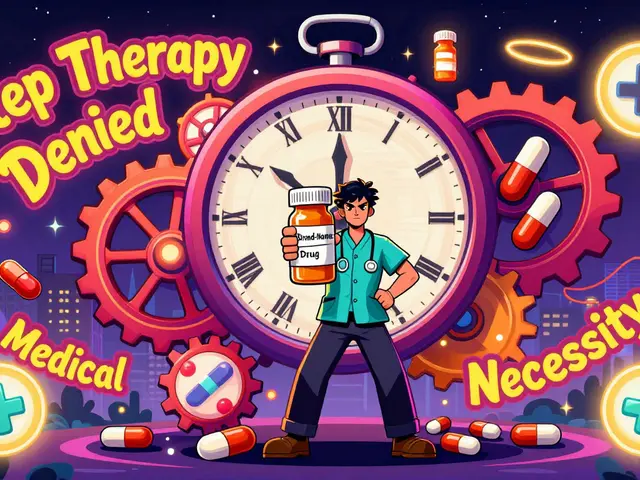Thyroid medication: what works, how to take it, and what to watch for
Thyroid meds keep your energy, weight, and mood steady. If your doctor prescribed one, you probably want clear, practical steps—not medical jargon. This guide breaks down common drugs, dosing tips, interactions, and signs you need a check-up.
Most people with an underactive thyroid take levothyroxine (T4). It replaces the missing hormone and is the standard first choice. Some people need liothyronine (T3) or a combination of T4/T3 for persistent symptoms. Your doctor decides based on blood tests, symptoms, and health history.
How to take thyroid pills so they work
Timing matters. Take levothyroxine on an empty stomach, ideally 30 to 60 minutes before breakfast or four hours after the last meal. Food, calcium, iron, and some supplements cut absorption. If you need calcium or iron, separate them by at least four hours.
Stick to one brand if possible. Switching between brand and generic can change how your body absorbs the drug. If a switch happens, ask your pharmacist and get TSH checked in 6–8 weeks.
Missed a dose? Take it as soon as you remember the same day. Don’t double up the next day. For consistent results, take your pill at the same time every day.
What your doctor will monitor and common side effects
Your doctor will check TSH (and sometimes free T4) about 6–8 weeks after any dose change, then less often once stable. Symptoms to watch: feeling too hot, racing heart, anxiety, or trouble sleeping can mean your dose is too high. Fatigue, weight gain, dry skin, or hair loss may mean it’s too low.
Some meds and conditions change how thyroid drugs work. Calcium, iron, antacids, estrogen therapy, certain cholesterol drugs, and some antidepressants can interfere. If you start or stop any medication, tell your doctor so they can retest your levels.
Pregnancy changes thyroid needs. If you’re pregnant or trying, tell your provider. Many people need a higher dose during pregnancy and closer lab checks to protect baby and mom.
Storage is simple: keep pills in a cool, dry place away from sunlight. Avoid bathroom cabinets that get humid. Check expiration dates and discard any that look damaged.
When to call your doctor: big weight shifts, new heart palpitations, chest pain, extreme tremor, or fainting. Also call if you plan major surgery or start powerful antibiotics or weight-loss drugs—these can change thyroid levels.
Practical quick tips: take your pill first thing before coffee, avoid calcium and iron within four hours, stick with one brand when possible, and keep regular TSH checks. If symptoms don’t match your labs, speak up—treatment can be adjusted. Thyroid meds work well for most people when used the right way.
Best Diet and Supplement Tips for Thyroid Medication: Nutrients That Really Work
Discover which nutrients can actually help your thyroid function better if you’re on thyroid medication. This deep-dive breaks down how diet tweaks and targeted supplements line up with the latest research, so you can get the facts that matter. We’ll clear up myths, talk about potential interactions, and even cover alternative options to mainstream medications. Expect actionable tips and real science, not just generic advice.





